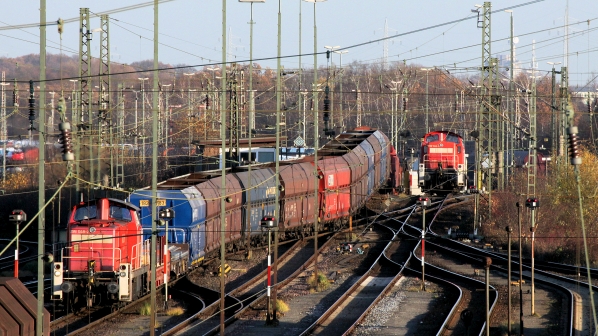Known as the Berlin Declaration, the agreement was signed during the “Innovative Rail Transport - Connecting, Sustainable, Digital” ministerial conference held in Berlin on September 21.
The ministers committed to:
- further strengthen and develop the Rail Freight Corridors (RFC)
- support rail freight stakeholders to enable them to better adapt to market needs
- enhance rail freight transport as one of the most environmentally friendly ways of moving freight
- further technical and operational harmonisation, and
- recognise that strong rail freight requires skilled workers.
The declaration comes nearly 10 years to the day after the European Parliament and Council adopted a regulation outlining a European rail network for competitive freight, laying the foundation for the current network of RFCs.
The ministers say the agreement is expected to bring fresh approaches and ideas to rail freight, and also build on the experience gained and best practice already developed by the RFCs. This includes a push towards fully carbon-neutral rail freight, as well as effective rail noise mitigation, research and innovation.
The declaration also recognises that progress can only be achieved with highly competent and trained staff. The lessons learned during the Covid-19 pandemic must also be implemented following the crisis.
The digitalisation of infrastructure networks, capacity management and allocation, including the management of temporary capacity restrictions, as well as the automation of transport processes and related information flows using interoperable IT systems, will also contribute to a more efficient use of existing and future investments.
The declaration was welcomed by the Sector Statement Group (SSG), which consists of the rail associations and their members. SSG also welcomed the clear commitment of the member states to agree on a migration strategy for Digital Automatic Coupling (DAC) and the recognition of the importance of further digitalisation of infrastructure networks, capacity management and allocation.
The SSG has also published a list of further developments that are needed to implement and build on the declaration:
- timetabling and capacity redesign
- new concepts for capacity offer on RFCs
- improving coordination on Temporary Capacity Restrictions (TCRs)
- enhancing the use of a Path Coordination System (PCS)
- improving harmonisation of processes at borders
- train tracking and expected time of arrival (ETA)
- prioritisation, funding instruments, monitoring of TEN-T parameters
- facilitating concrete ERTMS Implementation
- monitoring quality of freight services with implemented/shared KPIs
- harmonisation of Corridor Information Document (CID)
- International Contingency Management (ICM), and
- language programme.
“There has been a lot of progress in the SSG Priorities during the past years, but there is still room for improvement and closer cooperation,” the SSG says. “In this context the Berlin Declaration is very helpful as it sets the right priorities and contains a clear commitment of the member states to promote international rail freight transport.”

